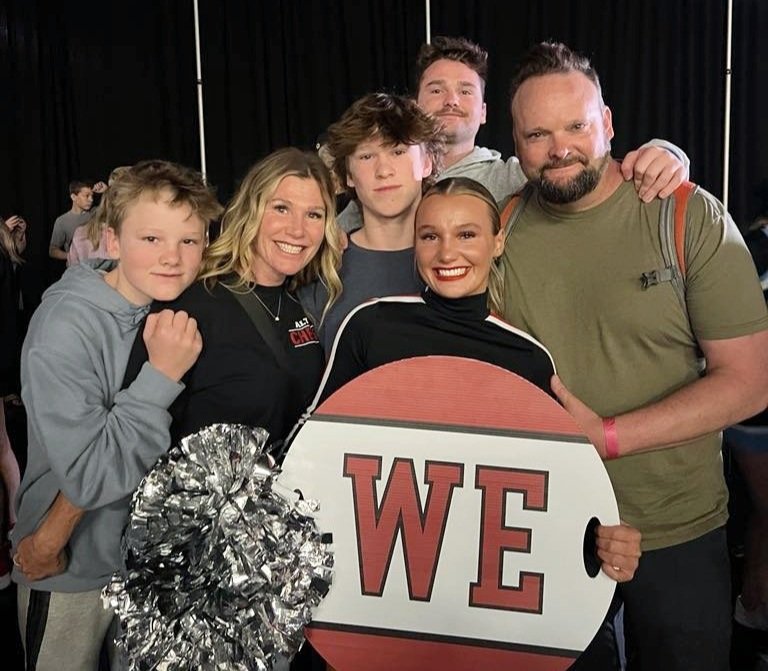
Divorce Better in Denver
Collaborative Divorce Mediation
Divorce for a tenth of the cost that you would pay two lawyers.
Lowered conflict protects your children.
Divorce in a fourth of the time than if you hired lawyers.
Avoid the courtroom completely
You want to do what’s right for you and your children. But the territory between here and your future is uncharted and ominous. And the courts and lawyers don’t seem to care about your values, financial security, or your children’s true wellbeing. We get it.
We are here to provide a better alternative for people like you. Through our unique Conscious Divorce Mediation process.
Divorce your way
Our expert mediators will help you get through divorce efficiently and cleanly. In a way that honors your values and protects your children. And avoids the financial and emotional carnage of a traditional divorce.
This is why hundreds of families have entrusted us to guide them through the crisis your family is facing.
With the right guidance, you don’t need lawyers or judges to chart the course of your family’s future.
HOW WE CAN HELP YOU
DENVER DIVORCE MEDIATION
If you have been looking for a Denver divorce mediation lawyer, then look no further. Conscious Family Law & Mediation offers high-quality divorce mediation services in Denver, CO, and statewide across Colorado. Whether you are just considering an amicable divorce or would like legal guidance pertaining to a separation, mediation services from Conscious Family can enable you to arrive at a practical decision.
What is Divorce Mediation?
Divorce mediation refers to the process whereby you, your spouse, and any involved attorneys work with a third party lawyer who represents neither party. This is the mediator who strives to guide both parties through a resolution without getting involved in litigation or in court. In this process, the mediator will usually prepare documents necessary for carrying out the divorce once both parties reach an agreement.
What does the divorce mediation process in Denver consist of?
A Denver divorce mediation process consists of a detailed discussion of the issues in your case and the kind of settlement that both parties would agree to. The mediator usually has experience in family law and will be providing legal information that can help with making your decision. You may ask your attorney to be present in the session if you would like advice in the negotiation process.
Every mediator uses their respective approach while organizing mediation sessions. Generally, there is a discussion on the process at first where both parties are split into two conference rooms. The mediator moves back and forth across both rooms to have the conversation. All agreements are recorded in the Memorandum of Understanding (MOU) which is signed and then presented to court. The MOU is later included in an elaborate Separation Agreement which, following court approval, becomes an order.
Mediators are formally trained in obtaining outcomes which represent the best interests of both parties. By maintaining their neutrality, a mediator ensures that both parties have equal time in discussing their needs and avoid sensitive issues from escalating into bitter conflict. Prior to working with a mediator, you might also work with your family lawyer to recognize such issues and design outcomes that would offer you comfort during the mediation process.
Our Commitments to You
A mediation process that is safe, fair, and affordable
Our diligent work to ensure you obtain fair and effective legal agreements that hold up over time and support you and your children
Keeping the social, emotional, developmental, and physical needs of your children the priority
Empowering you to articulate your needs and desires in way that supports open and honest communication
Court Acceptance Guarantee
"Once certified as acceptable and complete by one of our attorneys, we guarantee your agreements will be approved by the court. If rejected, we will fix any issues free of charge."

Conscious Divorce Mediation Process Overview
Free Introduction Call. You and your spouse get your questions answered about how we can support you to move efficiently through the complexities of divorce.
Intention Session. You and your spouse are guided through exercises to help identify commitments and build a strong foundation for the next phase of the process, creating mutual understanding and respect as you embark on the divorce mediation process.
Financial Orientation/Planning Session. You and your spouse will go over the required disclosures to ensure nothing major is missed going into your mediation session. You will also work with your mediator to get clarity about goals and issues specific to your family and financial picture, including working on any temporary or urgent issues.
Negotiate Your Settlement in Mediation. With your attorney mediator as guide and facilitator, you will be fully apprised of all legal issues so that the two of you are empowered to navigate, together, a comprehensive resolution. Our team then prepares all of your legal documents in a form that will be understood and approved by the judge.
Click here for a comprehensive flowchart of our process
Who would benefit from divorce mediation?
Anyone who wants to avoid a costly divorce expense and is willing to arrive at a peaceful resolution should consider divorce mediation. Although litigation might be essential for settling matters like child support and asset distribution, it can entail significant expenses for both parties. If you and your spouse want to reduce costs associated with attorney fees and other fees, then mediation is the right option for you.
Typically, couples who are ready to listen to each other and discuss volatile issues go for mediation sessions. However, mediation is also a viable option in cases involving a high level of dispute and disagreement between both parties. Our divorce mediators have many years of experience with offering mediation support to divorcing couples and can enable you to arrive at an ideal legal settlement for approval by court.
Divorce mediation in Denver
In Colorado, mediation is required by law (barring domestic violence cases) and offers both parties the ability to determine the outcome of the divorce. You and your spouse will be attending half-day and full-day mediation sessions with a mediator and your individual lawyers if you have any. Denver divorce mediation is focused on providing cooperative solutions to both parties on a range of divorce related matters.
In mediation, divorcing couples can expect to find a safe space to talk about the issues that they would like to resolve. Although mediators are not able to make decisions pertaining to the divorce, they can encourage civil negotiations to occur. A Denver divorce mediation attorney can help you to reach a conclusion about matters pertaining to:
Division of assets
Relocation
Spousal maintenance and child support
Parenting time and child custody
Division of debt
Grandparents’ rights
Visitation
Military divorce
Regardless of what issue might be perplexing you, you can rely on a divorce mediator to successfully solve it. Having a third party work with you on your issues can help you to reach a mutually satisfactory agreement.
Differences between litigation and mediation
If you and your spouse successfully arrive at your own decisions, you will not be required to litigate in court. This avoids both of you from depending on a judge to make decisions for your family which may or may not reflect both of your interests.
There are several differences and similarities between mediation and litigation. For instance, in mediation, every party may or may not have their own attorney. In litigation, clients are usually represented by individual lawyers. Both parties negotiate their differences with help from a neutral mediator in mediation. In litigation, a judge usually makes the decisions with regard to every issue.
The litigation process involves the court scheduling multiple cases which can drag the hearing process until many months. All involved parties organize their respective schedules for discussions which helps to move the process further along more quickly and efficiently. In courtrooms, there is more argumentation and stress involved for everyone. By contrast, every party in mediation handles issues more respectfully thereby reducing stress on the divorcing couples and any involved children. While couples are required to attend court hearings in litigation, couples in mediation do not have to appear in court.
DIVORCE MEDIATION FAQs
+ What are the advantages of a family law attorney conducting mediation?
Family law attorneys know the law, know what a common resolution in court would be and have seen the pitfalls and after-effects of poor agreements. An attorney can help prepare agreements that will be approved by the court and will be successful for your family.
+ What are the costs of mediation versus going to court?
Mediation is often a more cost-effective approach than court litigation. In court proceedings, both parties typically hire their own attorneys. With mediation, only the Conscious Family Legal Team would be hired and you also avoid paying court fees. It is also less stressful.
+ Privacy Concerns: Can information disclosed in mediation be used against me in court?
Unlike trials and hearings, mediation is private. Any negotiations or potential admissions made during mediation cannot be brought to court litigation, according to Colorado law.
+ What if we can’t reach a settlement?
Your mediator can recommend returning for another session or two to resolve any remaining issues. An agreement can be prepared for settled issues. If the parties do not settle in mediation, an impasse occurs. The issues can still be taken to court and decided upon by a judge. Mediation is still productive, even if an agreement is not reached as it helps both parties focus on the most important issues. This will save time and money if litigation were to occur.
+ Is my mediator also my attorney?
No. We are attorneys and mediators, but we must remain an unbiased third party. We cannot give legal advice to either party. However our team can provide valuable insight on a range of possibilities that the court could order in a family law matter, which proves to be helpful for parties trying to resolve their cases.
+ Is a mediation agreement enforceable?
An agreement signed by both parties at mediation is a binding agreement. If one party does not honor the agreement, the other party can go to court to enforce it.
+ How long does mediation take?
The time required to mediate the issues depends on the complexity of the case and the flexibility of the parties. Addressing the issues and guiding you to a win-win agreement typically takes 3 to 5 mediation sessions, but occurs at your own pace.
+ What if I’m concerned my spouse is hiding or will hide money?
In Colorado, there is a 5-year lookback during which a case can be reopened if it is discovered that a spouse misrepresented or failed to disclose assets. A CDFA (Certified Divorce Financial Analyst) or forensic accountant can be engaged at any time to do a thorough review of transaction records to ensure all financial issues are properly addressed.
+ What if I need more information about my legal position?
During the mediation process, people sometimes require individual legal advice. In that event, we refer each spouse to a respected family attorney who can be trusted to not escalate conflict unnecessarily. We always recommend getting any final settlement reviewed by independent counsel.
+ Does the mediator have a fiduciary responsibility to ensure a fair and equal outcome?
The most direct answer is no. The mediator does not have a fiduciary responsiblity to ensure some objective fairness of outcome. The role of the mediator is to be neutral and facilitate a fair process, in which all parties have equal ability to negotiate fairly and have equal ability to access information.
By engaging in mediation, parties take charge of their situation and take responsibility for deciding for themselves, rather than leaving it up to a judge or other decision-maker, what a fair outcome should be.
Something we recommend throughout the mediation process is to consult with your own attorney, who can advise and counsel you on your best interests, and help you feel clear that you are making a good bargain.
+ What if an agreement cannot be reached?
In nearly all of our cases, couples are able to reach a satisfactory agreement through mediation. But in the event you cannot find accord after multiple good faith mediation sessions, you can always decide to go to court.
+ Is a mediation agreement enforceable?
In general, yes, mediation agreements are considered enforceable in Colorado. It depends, though, on the agreement and the judge if it is called into question in court. It’s worth noting that this is rarely an issue because mediation results gain commitment from the participants – they both arrive at them collaboratively and agree to them prior to signing off.
+ What kinds of documents are required?
We don’t need “evidence” or other kinds of documents for mediation. The only documents that may prove helpful are financial reports used to generate agreement about things like spousal support, child support, and the division of assets.
+ Do I need to bring a lawyer to mediation?
No lawyers are required in mediation. In fact, the whole point is to try to make the entire process more amenable to all, so we strive to take the “us versus them” vibe out of mediation sessions. You are always welcome to consult with your attorney about any mediation agreements, but rest assured we are also attorneys at Conscious Family™ Law and Mediation.
+ What if my spouse wants to go to court instead?
Sometimes, one partner is more keen to try mediation than the other. Since the process only works when both spouses are invested in it, we recommend making sure your spouse understands how it functions. We are happy to answer any questions to put your partner’s mind at ease without applying any pressure either.
More questions will come up and we are here to support and answer all of your questions.
A mutual resolution is almost always possible…
Even if it feels unimaginable today.
Conscious Family's unique mediation process sculpted over 30 years of combined experience has helped hundreds of divorcing clients. Our clients have been able to overcome fear, avoid being overwhelmed and reach amicable solutions, without the carnage of a court battle.
Is divorce mediation right for you?
Both parties:
Are willing to collaborate and compromise
Wish to retain control of the process, not leaving issues for a judge to decide.
Remain decision-makers in the issues that affect their lives.
Our Conscious Family™ Divorce Mediation Team is committed to:
A Safe Divorce Process
Trust is not required between divorcing spouses in mediation, but respect is. Our mediators create a safe environment for each spouse to speak and be heard, and ensure that the process is directed toward outcomes that are fair.
Our Clients Making Well-Informed Agreements
Our mediators will ensure both spouses understand all relevant legal, financial, parenting, and practical issues related to divorce. So you can rest assured you are making good decisions.
A Transparent Divorce Process
You want to make decisions in your divorce based on complete information. Our mediators ensure that the entire process is transparent, that everything is disclosed, and that both spouses have the information they need to make informed choices.
Creating Divorce Agreements That Really Work
Who do you want to decide how you divide your property and parent your kids? Our clients want to make their own decisions, not leave it up to a judge. With our guidance, you will co-author creative solutions often impossible to attain in court. We will help resolve disputes and work through any disagreements so you can avoid common divorce (and post-divorce) pitfalls.
Your Children's Well-Being
Divorce is hard on kids. We hold your children’s well-being paramount, and commit to presencing their needs in mediation. Couples who work with us are committed to discerning what is truly in their children’s best interest, and to stay focused on peacefully transitioning from couple to co-parents.
Serving Your Highest Self
Divorce is often difficult, but it need not destroy your family. Our mediators help both spouses avoid battleground mentality so you can move on as painlessly as possible. We will help you identify your most important needs, and to move forward in concert with your deepest values.

Our Core Values
MINDFULNESS
We reflect as a team on how we operate, and are accountable for our impact.
EFFICIENCY/Innovation
Our team strives to constantly refine our processes to produce desired results in the best possible manner.
EMOTIONAL INTELLIGENCE
We determine our actions based upon compassion, and we seek to develop and employ emotional maturity in our service to families.

Choose the right Denver divorce mediation lawyer
Divorce is a stressful experience for all and we know how valuable it can be to have someone be there for you in the process. Working with a Denver divorce mediation attorney can allow you to be fully informed about your rights and responsibilities while reaching a cordial understanding with your spouse.
Attorneys at Conscious Family Firm have reached many successful resolutions in the past through divorce mediation. If we are not currently representing you, our law firm is here to offer you professional mediation services. We will be explaining the significance of mediation and how it could benefit you and your spouse. Our mediators have significant experience in conflict resolution and we will help to select the right individual for your case. For more information, visit our website or give us a call today.























